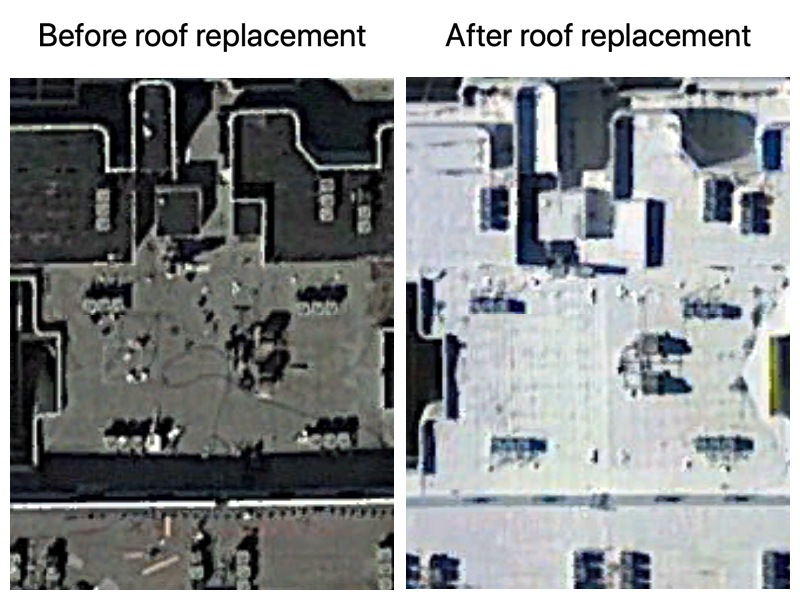
The importance of start-ups and climate tech companies in advancing the use of machine learning to combat climate change was emphasized at a recent online workshop.
Academics from a group devoted to considering how machine learning can help combat climate change have spoken of the response to a recent workshop which was moved online because of the Covid-19 crisis.
The Climate Change AI group hosted a ‘tackling climate change with machine learning’ workshop during this year’s International Conference on Learning Representations (ICLR) event.
“We’ve received an overwhelmingly positive response,” said David Rolnick, a postdoctoral researcher at the University of Pennsylvania and one of three chairs of Climate Change AI. “The live stream for our ICLR workshop was viewed over 2,500 times, the second-most among a dozen workshops at the broader ICLR conference.”
Fellow chair Priya Donti, a Ph.D. student at Carnegie Mellon University, in Pittsburgh, spoke about the help machine learning could offer in terms of climate tech entrepreneurship and seeding new businesses.
Machine learning v soft costs
“Machine learning can be used to forecast solar and wind power production as well as electricity demand,” said Donti. “These forecasts can then be sold to electricity suppliers or power system operators to help them more effectively balance the power grid.”
Climate Change AI colleague Rolnick added: “Machine learning can accelerate scientific discovery, for example by suggesting promising candidate perovskites. Machine learning can improve the temporal and spatial resolution of forecasting algorithms and it can efficiently control complicated systems, like demand response.”
Chris Heinrich, co-founder of machine learning research and consulting firm Qrithm, used the workshop to showcase his team’s research into predicting roof age using machine learning and satellite imagery. The technique is aimed at reducing the non-hardware ‘soft costs’ of rooftop solar.
“Soft costs now account for roughly 60% of the total cost of solar in the U.S., with customer acquisition costs alone accounting for 20% of the total cost,” said Heinrich who added, around 20% of that customer acquisition expense is wasted on people with roofs inappropriate to host PV panels.
Policy support
Predicting roof age would enable installers to target customers with older roofs who could add solar while renewing the structure, reducing solar costs and avoiding the necessity of removing panels to replace the roof at a later stage.
“The results presented in our research paper were essentially a proof of concept,” Heinrich told pv magazine. “We are currently working to improve our model in several ways and we intend to work with our client to deploy this into production.”
Another research project presented at the Climate Change AI workshop concerned the work of Xin Hou and her team at WeBank, a private lender in China. Using machine learning and satellite imagery, Hou and her team mapped Chinese solar power plants. As stated in their research paper, detecting solar installations from satellite imagery could “help investors and market researchers track the latest trends in solar PV installations and governments could use our results to evaluate the efficiency of certain support policies.” The team now plans to build a market-research index to track trends in solar installations.
Jon Bonanno, chief experience officer of clean energy entrepreneurship non-profit New Energy Nexus spoke at the workshop about creating and advising climate tech start-ups.
Entrepreneurship
On the potential of machine learning, Bonanno said: “Everyone understands that artificial intelligence is one of those leveraging technologies that can create quantum leaps in change very swiftly if you get product [and] market fit right.”
Climate Change AI’s Rolnick echoed the sentiment when he told pv magazine: “There [are] a lot of low-hanging fruit, especially when dealing with satellite imagery where machine learning tools can essentially be used right out of the box.”
Like Bonanno, workshop chair Donti emphasized the importance of developing technology to directly address customer needs. “In all cases, key challenges include finding the right market in which to deploy projects and thoughtfully co-developing solutions with relevant stakeholders,” she said.
New Energy Nexus’ Bonanno repeatedly emphasized the importance of a strong fit between product and market and told the audience: “You all are extremely brilliant in your field but getting your market wrong will kill your business idea faster than anything else. The priority is not being first but getting product-market fit.”
Lynn Kaack, a postdoctoral researcher at ETH Zürich and the third Climate Change AI chair, told pv magazine slow procurement systems could snag new climate tech organizations.
Funding models
“For start-ups working on climate change, early customers are often NGOs and the public sector,” said Kaack. “From our workshops, we learned that the procurement processes of these customers can take much longer than the usual funding structures allow. This means that there is a need for other funding models to support start-ups in this space.”
New Energy Nexus’ Bonanno suggested organizations working in the same field as Climate Change AI could offer grant funding to start-ups, in a similar manner to the advice and funding his organization offers new businesses in east and Southeast Asia, East Africa and the U.S.
Underscoring the importance of entrepreneurial efforts in machine learning to address climate change, Bonanno added: “At New Energy Nexus, we believe the entrepreneur is a key change agent. A diverse group of for-profit entrepreneurs creating sustainable, high-growth businesses will make a great impact on our climate crisis.”
By Dustin Zubke
"machine" - Google News
May 06, 2020 at 02:42PM
https://ift.tt/2WAKy0u
Tackling climate change with machine learning: The power of entrepreneurship - pv magazine International
"machine" - Google News
https://ift.tt/2VUJ7uS
https://ift.tt/2SvsFPt
Bagikan Berita Ini















0 Response to "Tackling climate change with machine learning: The power of entrepreneurship - pv magazine International"
Post a Comment